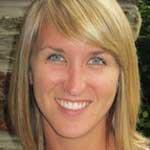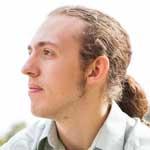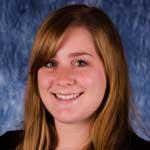
Fellowship Snapshots 2014
The Graduate School awarded 105 competitive fellowships to incoming and continuing Ph.D. students for the 2014–2015 academic year. Here is a look at the research being pursued by some of the recipients.
See our funding opportunities for graduate students
Gloria Ayee
Political Science
David M. Rubenstein Rare Book & Manuscript Library Internship
My dissertation research involves a comparative, cross-national study of truth and reconciliation commissions in countries that have used these extra-judicial institutions to pursue justice and promote national reconciliation following a period of civil unrest marked by severe human-rights abuses.
I am interested in exploring why there has been a proliferation of truth and reconciliation commissions around the world in recent years, and whether the perceived effectiveness of these commissions is real and substantial. My research considers the institutional design and composition of truth commissions, as well as the roles that the commissions play in the democratic transformation of nations with a history of civil conflict and human rights abuses.

Earth and Ocean Sciences
Jo Rae Wright Fellowship
I research both ocean physics, specifically turbulence in the upper ocean, and ocean biology, specifically the study of phytoplankton (algae). For my dissertation work, I have combined these two areas to study how changes in mixing and turbulence within the upper ocean in the late winter and early spring trigger large spring phytoplankton blooms, similar to the spring blooms seen in land plants. The timing of these large seasonal blooms affects both the populations of upper trophic level species (for example, fish and shrimp) and the efficiency of the biological carbon pump, which works to draw carbon dioxide out of the atmosphere and store it in the deep ocean for hundreds of years.

Ecology
James B. Duke Fellowship
As a member of the Mitchell-Olds lab, I will be studying the ecology and evolution of plant defense—namely, chemical defense (glucosinolate production) in Boechera, a wild relative of the model organism Arabidopsis. Complex plant traits, such as defense, mediate important ecological interactions. They influence how plants respond to environmental cues and in turn modify their environment through the expression of those traits.
The Mitchell-Olds lab offers me a unique opportunity to work across focal levels, connecting the genetic underpinnings of defensive traits to their biosynthesis and, ultimately, their ecology. I will be coupling lab and greenhouse work at Duke with field experiments in the northern Rocky Mountains, where I will take advantage of the large-scale common garden plots the lab uses to study the implications of defensive traits in the historic, natural environments in which they have evolved.

Sociology
James B. Duke Fellowship
University Scholars Fellowship
I hope to study inequality, stratification, and education. As a first-year Ph.D. student, I’m not sure yet exactly what form my research will take, but I plan to examine issues around students’ completion of school, success in college and careers, and rural/urban divides. I’m also intrigued by the possibilities of social network analysis as a tool for better understanding meaningful social structures that affect education outcomes.

Psychology and Neuroscience
Phillip Jackson Baugh Fellowship
As a graduate student, I have attempted to more fully understand the biological underpinnings of psychopathology in adolescence, specifically depression. I am particularly interested in introducing a self-regulation perspective (derived primarily from regulatory focus theory) to offer a comprehensive understanding of why adolescents are differentially vulnerable to depression.
Regulatory focus theory states that in adults, chronic perceived failure to make progress in pursuing goals can lead to ineffective goal pursuit and chronic distress. However, little research has been done on how individual differences in regulatory focus develop and manifest during adolescence. This is a crucial topic to explore given the dramatic neurodevelopmental and psychosocial changes that take place during this time, specifically with regard to self-regulatory abilities.
My emerging program of research attempts to elucidate how developmental stage, neural activation, and individual differences (both at the personality and genetic level) interact to contribute to the negative affective consequences associated with self-regulatory failures in adolescence.

Art, Art History and Visual Studies
James B. Duke Fellowship
University Scholars Fellowship
I am interested in the history of the idea of language as a thing distinct from its speakers. From Sanskrit grammar to Greek logic to Medieval theology to Enlightenment philosophy to structural linguistics to psychoanalysis to literary criticism to artificial intelligence to statistical machine learning, we have been noticing for thousands of years that, despite a vast and dynamic history, there is nevertheless something very regular in the character of language at every level that is not wholly up to us. If we hope to conceptualize communication with nonhuman intelligences, whether organic, machinic, or phenomenological, then we must first understand what is and is not inherently human about language and what communicative common ground is imaginable.

Sociology
Dean’s Graduate Fellowship
My aims in pursuing doctoral studies at Duke University are to examine the ways that race, class, and education inequality influence educational outcomes for children and how the intergenerational transmission of beliefs about knowledge, learning, and education affect low-income and minority students’ academic identity and aspirations. I am particularly interested in examining the parent-child relationship as a predictor for academic achievement and academic identity formation.

History
Katherine Goodman Stern Fellowship
My dissertation, “Journalists, Scandal, and the Unraveling of One-Party Rule in Mexico, 1965-1988,” reconsiders the roots of Mexico’s democratic transition.
At the outset of my research, I sought to resolve an apparent paradox: Mexican journalists consistently voiced criticism of the one-party regime while benefitting from their close relationships with political leaders. Popular and scholarly works tend to overlook such vocal attacks, citing conflicts of interest and corruption to downplay journalists’ political roles. Through access to journalists’ private archives, my research reveals that media scandals both reflected and sharpened regime divisions during the final decades of the Partido Revolucionario Institucional’s rule.
I contend that journalists generated new expectations about corruption, legitimacy, and democracy, ultimately helping to shape Mexico’s political change. This research reframes understandings of the relationship between free speech and democracy in post-1960s Mexico.
Bryce Gessell
Philosophy
James B. Duke Fellowship
University Scholars Fellowship
My research interests deal with the way the brain works and how cognition is possible. Answering these questions requires the contribution of multiple fields, including philosophy, neuroscience, and psychology. My plan of study is to get as much training as possible in those and other areas, and then get to work answering questions about cognition, knowledge, and the way our mind experiences the world.

Public Policy Studies
Dean’s Graduate Fellowship
The topics I care about are those that affect the lives of working adults, including the minimum wage, low-wage work, and job quality. I am particularly interested in how these issues affect African Americans in the labor market. In terms of labor-market research, I plan to examine topics in economic returns to education, income upward mobility, and wealth inequality. I am excited about doing research at the intersection of economics and public policy.
Melody Jue
Literature
Katherine Goodman Stern Fellowship
My dissertation, “Wild Blue Media: Thinking Through Seawater,” explores the ocean as an environment for thought and how it is different from the land. Theory has tended to assume a human observer comfortably positioned on dry land, exhibiting what I call a "terrestrial bias." Yet the alienness of the ocean and its life forms offers new perspectives by asking us to imagine different kinds of media.
For example, imagine the world of the vampire squid living in the deep ocean abyss. We could ask, “What media are available to it?” Maybe ink clouds and changing skin patterns would help it communicate with other squid and pass on history; but it could not engrave rocks, paper, or code on a computer. Examples like this show that our concepts (like media) are absolutely dependent on the environment in which we think about them, as well as on the entity (human, machine, animal) that perceives.
Across three chapters, I submerge the foundational vocabulary of media theory—”inscription, database, and interface—in the ocean environment to see how they develop under briny, pelagic conditions. The practice of SCUBA diving has been formative in the development of my research. I pursued advanced diving certification in order to experience what it is like to breathe underwater and encounter sea creatures in their own habitat. My 30-plus hours of dive time visiting corals, sculptures, shipwrecks, and caverns directly contribute to chapters two, three, and the conclusion of my project.

Molecular Genetics and Microbiology, Cell and Molecular Biology
Jo Rae Wright Fellowship
In my work I ask, “How do microbes influence humans on a cellular level?” Our interactions with microbes affect our bodies and health, including pathogens that make us sick and our commensal microbiome that can keep us healthy. In particular, I study an ancient and very successful pathogen of humans, Chlamydia trachomatis, which resides within cells themselves during infection.
Chlamydia remains in a membrane-bound compartment within cells and injects proteins directly into the host cells to manipulate host cellular pathways in order to survive and thrive. Chlamydia induces remarkable changes in the organization of a cell by rearranging intracellular organelles and altering the host cytoskeleton to form around the bacteria-containing compartment.
In my work, I have identified a strain of Chlamydia which does not form this unique cytoskeletal structure. Through its study, I have identified a bacterial protein that co-opts complex cellular pathways to assemble the host cytoskeleton around the bacterial compartment. Remarkably, I find that the cytoskeletal structure is involved in redistributing certain organelles and influences the severity of the cellular immune responses mounted against this intracellular pathogen. My research leads to significant and novel insights into host-microbe interactions, new understandings of eukaryotic cell biology, and possibilities for better treatments for Chlamydia infections.
Lauren Lowman
Civil and Environmental Engineering
Pratt-Gardner Graduate Fellowship
A long-term project that my adviser and I have discussed is conducting a risk analysis of water availability due to climate-change-induced droughts on water resources infrastructure. One of the main goals of this project will be to develop a joint hydro-ecologic and economic model to assess the short- and long-term effects of droughts and offer viable and informed recommendations to water resource managers and policy-makers.

Religion
James B. Duke Fellowship
I study contemporary religious behaviors, beliefs, and practices of communities that identify themselves as secular or irreligious, especially those who affiliate with science.
In the 2012 Pew Forum on Religion and Public Life, we saw the continued, steady rise of religious disaffiliation—people who do not identify themselves as religious. However, perhaps most intriguingly, we saw that many people who are religiously unaffiliated still claim what we would commonly call religious beliefs or practices—belief in God or spirits, or a kind of spiritual energy, and daily prayer, meditation, or yoga as an explicitly spiritual practice. These statistics should be taken with a grain of salt, but they point to an important discontinuity, or at least a profound multiplicity, of common-sense understandings of the word "religion," as well as to a general growth of people in the United States who find religious satisfaction outside the domain of the institutions and traditions we generally place under the category of religion.
My research seeks to understand the religiosity of secular American and Chinese people, and how this religiosity interfaces with scientific theory and beliefs, especially about the origin of the world, the nature of life and intelligence, and the reason for the efficacy of science. I’m interested in how these theories get deployed both by scientists and in popular culture to help contemporary Americans and Chinese make sense of the cosmos and our place in it.
Karen Messina
My research interests center primarily on Italian opera of the late 19th and early 20th centuries, particularly of Giacomo Puccini. More generally, I am interested in vocal music and how composers choose to convey the meaning of the text or plot in their music.
Justin Mitchell
English
Dean’s Graduate Fellowship
I study the relationship between contemporary American literature and identity politics. I am particularly interested in how novelists and literary critics engage with ideologies that help to sustain the existing social order. I focus on works by David Foster Wallace, Toni Morrison, William Gaddis, Paul Auster, John Edgar Wideman, and Susan Sontag.
Julie Newberry
Religion
James B. Duke Fellowship
Working in the New Testament track of Duke’s Graduate Program in Religion, I hope to pursue theologically grounded, historically sensitive scholarship, attending to the literary shape of the biblical text as a means of elucidating its implications for the whole of life.
In fall 2014, my coursework will include further training in ancient Greek, reflection on the topic of New Testament theology, and close analysis of the Book of Peter. Although I do not yet have a fixed dissertation topic, I am particularly interested in the narrative portions of the New Testament, the Gospels and Acts. I am also fascinated by the relationship between Israel’s scriptural traditions and the New Testament, as well as the place of biblical interpretation in Jewish-Christian relations today. Some of my questions about this topic stem from reading the Hebrew Bible and Old Testament with Jewish and Christian older adults. Drawing on my experiences with older adults and recognizing the importance of age as a category for many religious communities today, I would like to examine the construction of age and intergenerational relations in biblical books, exploring this topic in relation to both ancient contexts and contemporary religious communities.

Ecology
Dean’s Graduate Fellowship
I’m interested in how disease risk has shaped the nature of maternal care, as well as how this has influenced the growth, survival, and reproductive patterns of highly social species.
When every contact represents an opportunity for pathogen transmission, the highly social nature of some mammalian groups becomes a puzzle. There are ample data supporting the notion of parasite-induced reductions in host fitness, and hosts are under selection to develop behavioral and immune responses that minimize infection and disease induced mortality. These responses are especially important during infancy, when the newborn is most at risk due to immature immune defenses. Thus, early protection from parasitic infection primarily falls within the highly variable domain of maternal investment. These maternal defenses may be physiological (immunological and nutritional components of maternal milk) or behavioral (cleaning, activity budget, sociality), but both are extremely costly for the mother. I want to explore the physiological and behavioral changes that enabled increased infant survival on the road to highly social mammals.

Sociology
Dean’s Graduate Fellowship
I am interested in researching issues related to race, inequality, and education, specifically how certain policies or interventions may affect levels of college readiness and postsecondary success for disadvantaged students.
Amelia Poplawski
Molecular Cancer Biology
Chancellor’s Scholarship
As a first-rotation project, I am investigating the role of a particular protein, Abl kinase, in lung cancer metastasis. More specifically, we are seeking to better understand the mechanism by which lung cancer metastasis occurs by analyzing some of the key players involved in the signaling pathways implicated in metastasis. From a broader perspective and for future lab rotations, I am hoping to use the tools of chemical biology, biochemistry, and molecular biology to better understand and characterize proteins associated with disease.

Literature
Dean’s Graduate Fellowship
My broad research interests include diasporan populations and their relations to the homeland, postcolonial literatures, and trauma and memory studies. My research at Duke will focus on approaches to narrativizing trauma from political violence in contemporary literature. Two particular themes of interest include 1) the ways in which the presence or absence of “disappeared” persons within a country has influenced national identity and communal memory, and 2) the claims to authority that members of a diaspora and members of the homeland simultaneously make on the right to tell the nation’s story.

Statistical Science
Katherine Goodman Stern Fellowship
I am working on statistical methodology motivated by biological applications. In one project, I have been developing statistical models for analyzing blood samples. Identifying immune cell subtypes in terms of their functional responses to various stimuli is crucial for understanding the etiology of common diseases such as HIV, leukemia, and lymphoma. In a second project, I am developing statistical algorithms to analyze sequencing data and detect differences across multiple samples.

Evolutionary Anthropology
James B. Duke Fellowship
I am a first-year student in the Tung lab in evolutionary anthropology. I will be working to better understand the molecular dynamics of baboon hybridization using long-term data from the Amboseli Baboon Research Project.

Molecular Cancer Biology
Chancellor’s Scholarship
My passion for many years has been learning as much as I can and gaining hands-on experience in the field of cancer biology. I am interested in many topics involved in cancer, including the genetics behind tumorigenesis as well as heritable genetic predispositions to certain cancers, therapies for cancer, mechanisms of resistance to cancer therapies, and recurrence and metastasis of cancer. Amazingly, there are many opportunities here at Duke to involve myself in all these aspects of cancer biology research. I’m excited for the road ahead at Duke, and although my focus will narrow, I have the ability to gain as much knowledge as I can about the field of cancer biology and beyond.
Kaitlyn Webster
Political Science
James B. Duke Fellowship
My focus is in the political science department’s Security, Peace, and Conflict subfield, because I am particularly interested in substate violence and civil war termination. I intend to research why certain insurgent groups are more brutal than others and what circumstances make regime or opposition forces more likely to target civilians in civil wars.